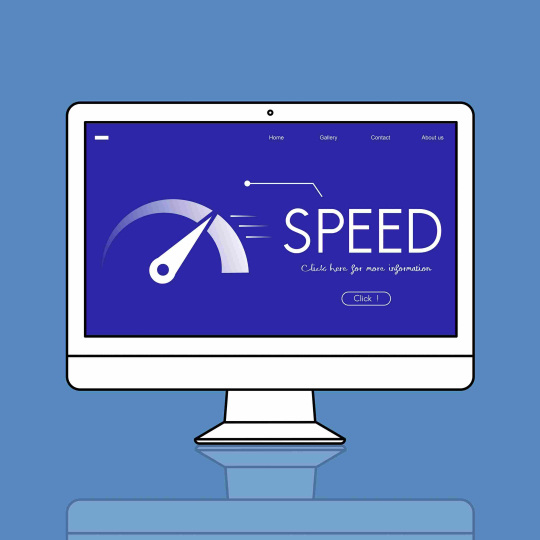In today's hyper-competitive marketplace, businesses face a multitude of challenges ranging from attracting and retaining customers to managing complex sales pipelines and enhancing customer experiences. To effectively navigate these challenges and stay ahead of the curve, businesses need to adopt innovative technologies that streamline processes and enhance efficiency. Customer Relationship Management (CRM) software has emerged as a vital tool for businesses across industries, providing a centralized platform to manage interactions with customers, improve sales performance, and foster long-term relationships. In this article, we delve into the reasons why CRM software is indispensable for modern businesses.
1. Centralized Customer Data Management
One of the primary functions of CRM software is to consolidate customer data from various touchpoints into a single database. This centralized repository allows businesses to gain a comprehensive view of each customer, including their contact information, purchase history, preferences, and interactions across different channels. By having access to a unified dataset, businesses can better understand their customers' needs and preferences, enabling them to deliver personalized experiences and targeted marketing campaigns.
2. Enhanced Customer Engagement
CRM software empowers businesses to engage with customers in a more personalized and meaningful manner. By leveraging the insights derived from customer data, businesses can tailor their communication strategies to cater to individual preferences and interests. Whether it's sending personalized emails, targeted promotions, or proactive support messages, CRM software enables businesses to nurture relationships with customers throughout their journey, leading to increased loyalty and satisfaction.
3. Improved Sales Performance
For sales teams, CRM software serves as a valuable tool for managing leads, tracking opportunities, and optimizing the sales process. By providing visibility into the sales pipeline, CRM software enables sales representatives to prioritize leads, forecast revenue, and identify potential bottlenecks. Additionally, features such as automated lead assignment, activity tracking, and performance analytics empower sales teams to work more efficiently and effectively, ultimately driving revenue growth and profitability.
4. Streamlined Marketing Campaigns
In the realm of marketing, CRM software plays a pivotal role in orchestrating targeted campaigns and measuring their effectiveness. By segmenting customers based on demographics, behavior, or purchase history, marketers can create highly personalized campaigns that resonate with their audience. Moreover, CRM software offers features such as email marketing automation, lead scoring, and campaign analytics, enabling marketers to optimize their strategies, improve conversion rates, and maximize ROI.
5. Enhanced Customer Service
Exceptional customer service is a cornerstone of business success, and CRM software equips businesses with the tools to deliver exceptional support experiences. By integrating with helpdesk systems and customer service channels, CRM software enables businesses to track customer inquiries, resolve issues promptly, and maintain a record of interactions for future reference. Moreover, features such as self-service portals, knowledge bases, and chatbots empower customers to find answers to their queries independently, reducing the burden on support teams and enhancing overall efficiency.
6. Data-driven Decision Making
In today's data-driven business landscape, making informed decisions is paramount to success. CRM software provides businesses with access to real-time insights and analytics that inform strategic decision-making across departments. Whether it's identifying emerging market trends, evaluating the performance of marketing campaigns, or forecasting sales projections, CRM software empowers businesses to leverage data effectively and stay ahead of the competition.
7. Scalability and Customization
Another key advantage of CRM software is its scalability and flexibility to adapt to the evolving needs of businesses. Whether you're a small startup or a large enterprise, CRM software can be tailored to suit your specific requirements and scale alongside your growth. From custom fields and workflows to integrations with third-party applications, CRM software offers a high degree of customization, allowing businesses to create a solution that aligns perfectly with their processes and objectives.
8. Collaboration and Communication
Collaboration is essential for driving cross-functional alignment and ensuring seamless communication across departments. CRM software serves as a centralized hub where teams can collaborate on customer-related activities, share insights, and coordinate efforts effectively. Whether it's sharing notes from customer interactions, assigning tasks to team members, or tracking project milestones, CRM software fosters a collaborative environment that enhances productivity and accelerates decision-making.
Conclusion
In conclusion, CRM software has become an indispensable tool for modern businesses looking to thrive in today's competitive landscape. By providing a centralized platform for managing customer relationships, improving sales performance, and enhancing overall efficiency, CRM software enables businesses to deliver exceptional experiences that drive customer loyalty and business growth. From small startups to large enterprises, investing in CRM software is not just a choice but a necessity for businesses looking to stay ahead of the curve and succeed in the digital age.






